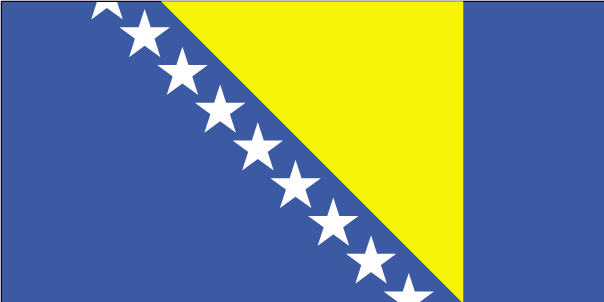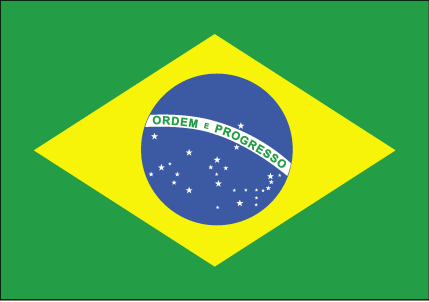Resolution #456
 |
The question of peacebuilding in post-conflict areas. |
| Committee: DISEC | |
| Main Submitter: Algeria | |
| Submitted: 15/02/2025 11:47 |
| Status |
|---|
| Passed cosubmitter sheet validation |
| Approved by approval panel |
| Selected for debate by secretariat |
| Passed by committee (DISEC) |
Committee Voting
| For: | 32 |
| Against: | 18 |
| Abstentions: | 1 |
Options
Co-submitters
 | Bahamas |
 | Brazil |
 | China |
 | Italy |
 | Slovenia |
 | Switzerland |
 | United Arab Emirates |
Resolution
FORUM: The Disarmament and International Security Committee (DISEC)
THE QUESTION OF: Peacebuilding in post-conflict areas.
SUBMITTED BY: Algeria
CO-SUBMITTED BY: Bahamas, Brazil, China, Italy, Slovenia, Switzerlands, UAE
THE DISARMAMENT AND INTERNATIONAL SECURITY COMMITTEE (DISEC),
Guided by the purposes and principles of the Charter of the United Nations,
Recalling the Peacebuilding and sustaining peace Report of the Secretary-General 72/65 18 January 2018, which was established by the common efforts of the General Assembly and the Security Council(UNSC), which it outlined the importance of the peacekeeping and the crucial role of common effort of all UN Member States,
Fully Alarmed by the increasing number of people in need for humanitarian assistance in the post-conflict zones due to following violence caused by listed as but not limited to terrorist groups and conflicting ethnicities,
1. Accepts that taking measures against groups such as, but not limited to, militias, extremist groups, holds a highly significant importance for establishing, sustaining, and guaranteeing the long term peace for not only the post-conflict zones but globally thus the member states of United Nations(UN) will support the actions of the governments in the post-conflict zones by providing technical assistance to the requesting nations so that receiving government can strengthen in areas such as developing expertise in counter terrorism strategies, military training and developments in counter terrorism in civilian zones;
2. Invites the United Nations Security Council (UNSC) to include on its agenda the repositioning of reserved enforcement forces for the purpose of providing military aid and support to the aforementioned governments with the primary purposes of:
a. increasing the number of military personnel to fight against any existing threats that can lead to further tension such as but not limited to terrorist groups, groups that are carrying out arms trafficking in the region for militias
b. providing professional and specialized military trainings to requesting nations militaries regarding military actions towards countering armed post-conflict tensions;
3. Draws attention to the importance of permanently limiting the access of terrorist groups to ammunition, weapons, and munitions in order to sustain and protect the peace environment in the post-conflict zone; thus the asks the relevant states of UN to take actions, such as but not limited to, by:
a. increasing the monitoring and control in the arms trading zones, to limit the expanding of the armed groups in the region, by collective knowledge and information sharing related to terrorist groups
b. supporting regional and international cooperation to establish more comprehensive and united task forces in the post-conflict zones;
4. Recommends that the United Nations Peacebuilding Commission work in conjunction with the OCHA and the OHCHR in order to integrate humanitarian aid and civilian support into post-conflict zones as they transition to stability, through methods including:
a. the development of a joint, phased approach between the OCHA, the OHCHR, the Peacebuilding Commission, local and national governments and local communities,
b. the creation of specialised teams for different post-conflict areas, involving peacebuilding workers and representatives from local and national governments, to work together in post-conflict zones globally and ensure that long-term aid and support is efficiently implemented in post-conflict zones, this aid should include measures;
5. Reminds the critical importance of conducting mine removal operations in post-conflicted areas, so that the mutual goal of peace building in aforementioned areas are sustainable and are not jeopardized with any kind of unexpected tension breakthroughs from civilian casualties, which will be carried out by the governments of hosting nations and will be further supported by United Nations(UN) by:
a. providing personnel and technical assistance to the requesting countries in order to facilitate a faster progression in the operations that will be conducted
b. playing a mediator role among countries to build cooperation so that the mine removal operation can be further continued in border areas without the
c. concern of conflicts between two parties in the region;
6. Recognizes the importance of protecting civilians and vulnerable populations in the post-conflict zones a crucial aspect of establishing a peace environment and securing its continuity in the future and accepts that a set of comprehensive measure must be taken to address the threats against their safety, thus the member states of the United Nations(UN) will take actions by strengthening the peacekeeping forces in post-conflict cones by increasing their numbers and providing additional military equipment;
7. Further Accepts the importance of supporting the governments of post conflicted areas in areas such as military trainings for combat in urbanized regions while ensuring the safety of civilians, thus calls for the establishment of a new sub branch of the The Disarmament and International Security Committee (DISEC) under the name of Technical Trust for Post-Conflict Assistance (TTPCA) which will be responsible for: monitoring of the safe zones and conducting regular assessments and monitor the process and action taken by the armed forces of the nation, urbanized areas, efficient army equipment usage against terrorist groups.
8. Urges the UNPBC to be responsible for the establishment of peace talks within post conflict areas deemed to be at a particular risk of instability, which will involve efforts to de-escalate tensions between conflicting parties by measures such as the oversight of negotiations, open dialogue, mutual agreements of trust, and assistance in the establishment of clear and equal peace treaty agreements in areas in which this has not yet been achieved, the peace talks should also include steps to de-escalate tensions among the populations of conflicting parties or groups, which may include considerations such as cultural exchanges, the development of dialogue initiatives among communities or groups to foster mutual understanding education and awareness campaigns run by the UNICEF and member states that will be focused on reducing the presence and effects of any particular hatred between opposing populations;
9. Further urges member nations to work together to create a new scheme, the United Nations Post-Conflict Weapons Removal Scheme (UNPCWRS) in order to safely dispose of any weapons that have been left behind during conflict, as well as tracking and assessing the presence of illicit weapons, through methods including but not limited to:
a. the referral to the Security Council for the creation of a United Nations task force in order to dispose of any weapons that have been left behind in post-conflict zones, through working in conjunction with local governments, authorities and the United Nations in order to ensure the safe collection and disposal of weapons
b. the creation of regional arms databases and tracking systems, working in collaboration with relevant member nations
c. the development of awareness programmes in post-conflict zones and neighbouring regions addressing the dangers of illicit weapons and encouraging civilians to report suspicious activity to authorities;
10. Encourages the establishment of an Independent Peacebuilding Monitoring Body (IPMB) under the UN Peacebuilding Commission, responsible for assessing the progress and effectiveness of post-conflict peacebuilding efforts through:
a. conducting periodic on-ground evaluations of security, humanitarian aid, and governance stabilization efforts in post-conflict zones
b. publishing biannual reports accessible to both the UN and the public, outlining successes, areas for improvement, and emerging challenges in maintaining peace
c. facilitating direct communication between local communities and international peacebuilding organizations to ensure civilian concerns are addressed.